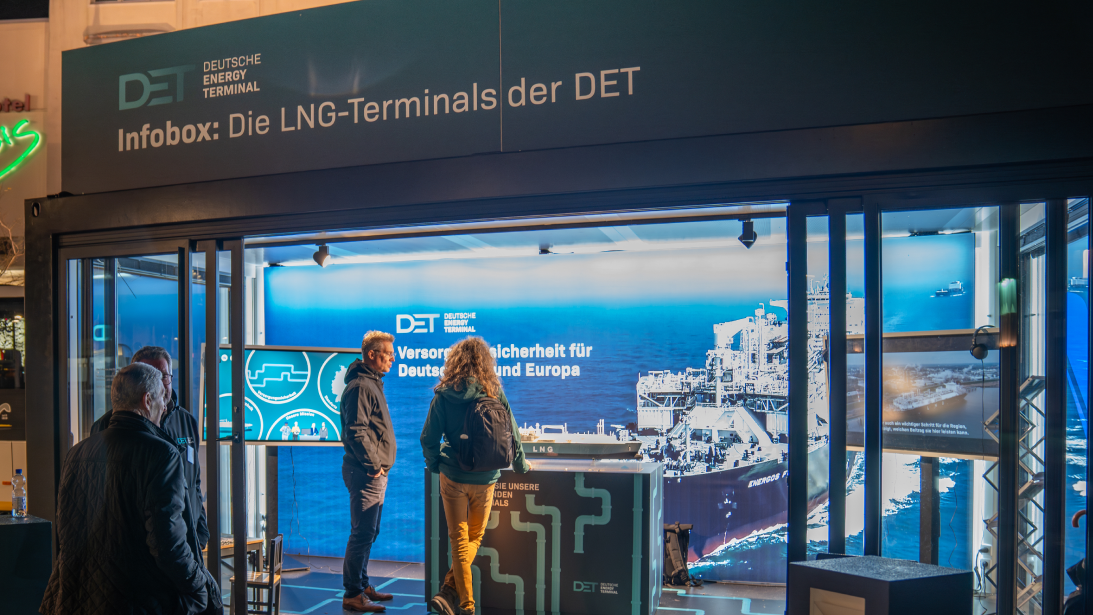
As Germany expands its LNG import network, Deutsche Energy Terminal (DET) faced a communication challenge: explain highly technical infrastructure projects to the public — directly, transparently, and on-site. Our task was to create an interactive container installation that could travel to port cities like Stade, Wilhelmshaven, and Brunsbüttel, acting as a mobile information hub for citizens, local authorities, and media.
The result: a self-contained experience that turns data into dialogue and connects complex energy transformation to human-scale understanding.
Liquefied Natural Gas (LNG) terminals are key assets in Germany’s transition to energy independence — but they’re also complex, controversial, and often misunderstood. DET wanted to meet people where the projects happen: on-site, face-to-face, and fact-based.
The challenge was to design a mobile, modular space that communicates technical, environmental, and social dimensions clearly, while remaining approachable and engaging for all audiences. The solution had to blend industrial precision with interactive storytelling — an infrastructure information center that feels more like an experience than a briefing.
We designed and built the DET Interactive Container — a mobile exhibition unit combining architecture, design, and multimedia content. The container features touchscreens, video walls, and physical models that visualize the flow of energy from terminal to grid. Visitors can explore how LNG terminals operate, how safety systems function, and how the infrastructure contributes to Germany’s long-term energy transition.
Each container is fully self-sufficient — equipped with its own power and communication systems — allowing DET to deploy it flexibly at public events, construction sites, or city centers. Inside, visitors experience a guided narrative supported by motion-activated media, dynamic light, and physical materials from the real construction sites.
In parallel, we developed the content architecture and UX concept, ensuring each touchpoint — from display screens to printed materials — communicated clarity, neutrality, and accessibility. The tone: factual but human. The goal: conversation instead of confrontation.
The DET Interactive Container launched as part of the nationwide information campaign accompanying Germany’s LNG terminal expansion. It has since toured multiple port cities, acting as a transparent interface between industry and citizens.
By merging physical design, digital interaction, and strategic communication, DET created a new format for public infrastructure dialogue — one that builds understanding instead of distance. The container serves as a scalable, replicable model for communicating large-scale industrial projects in an engaging, credible way.
Results